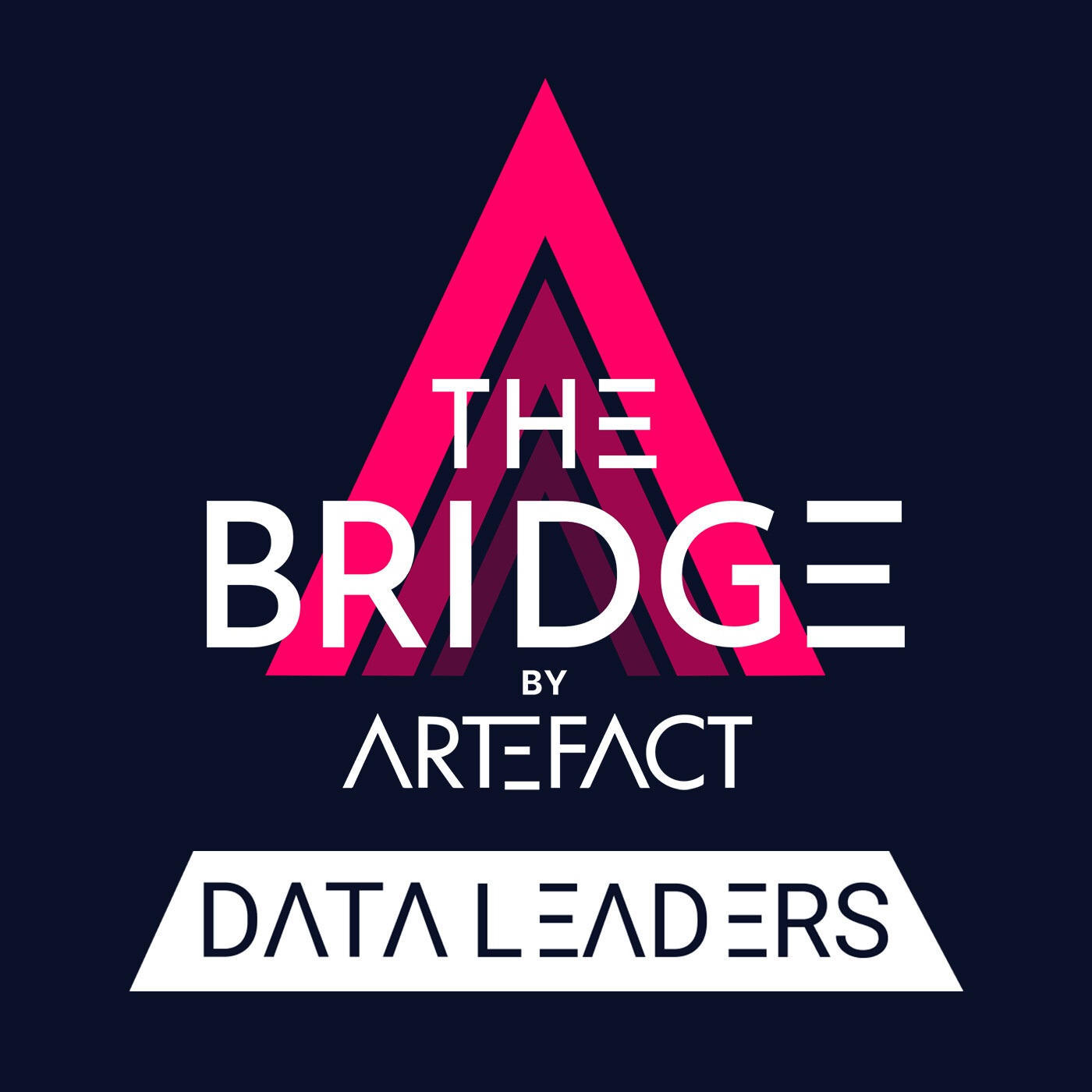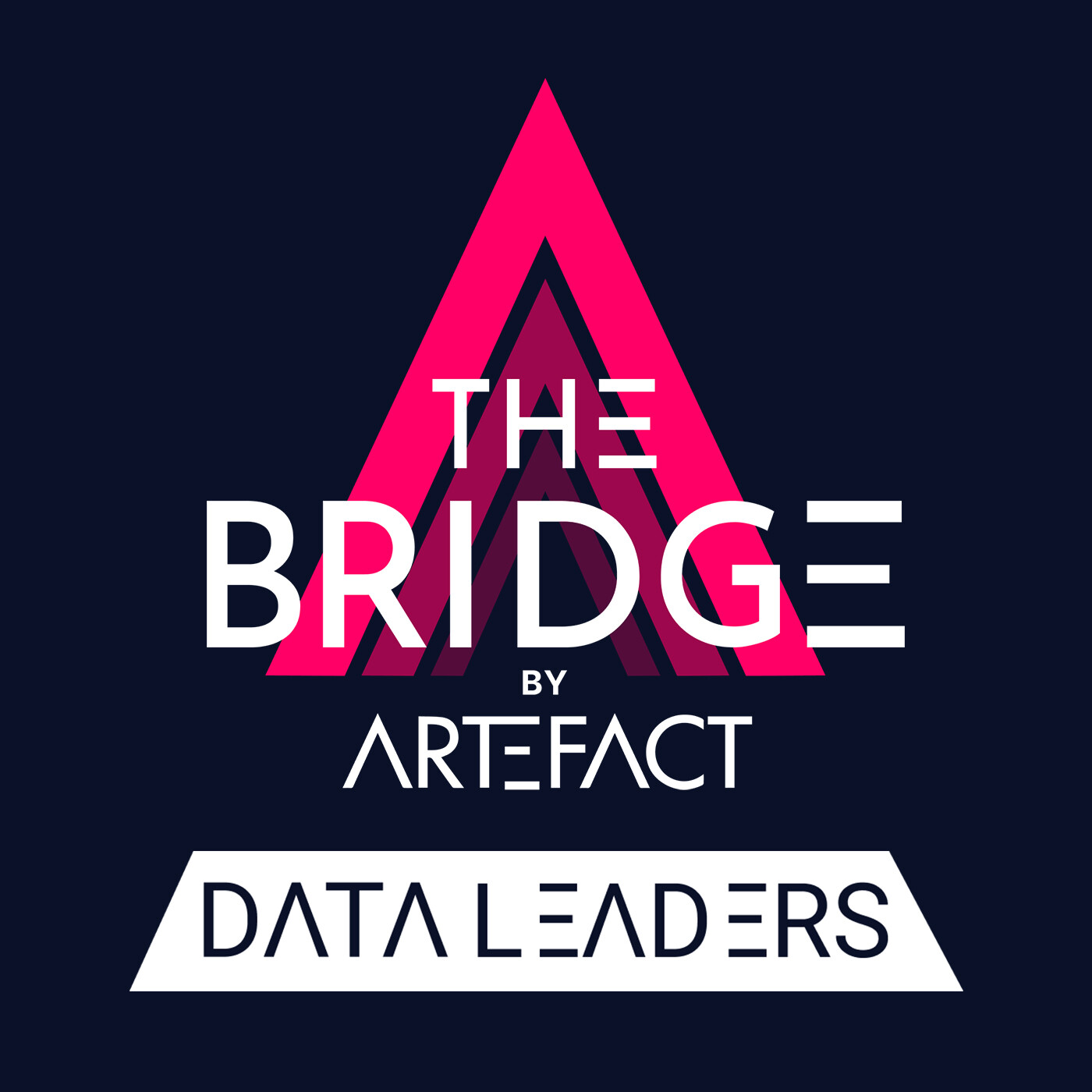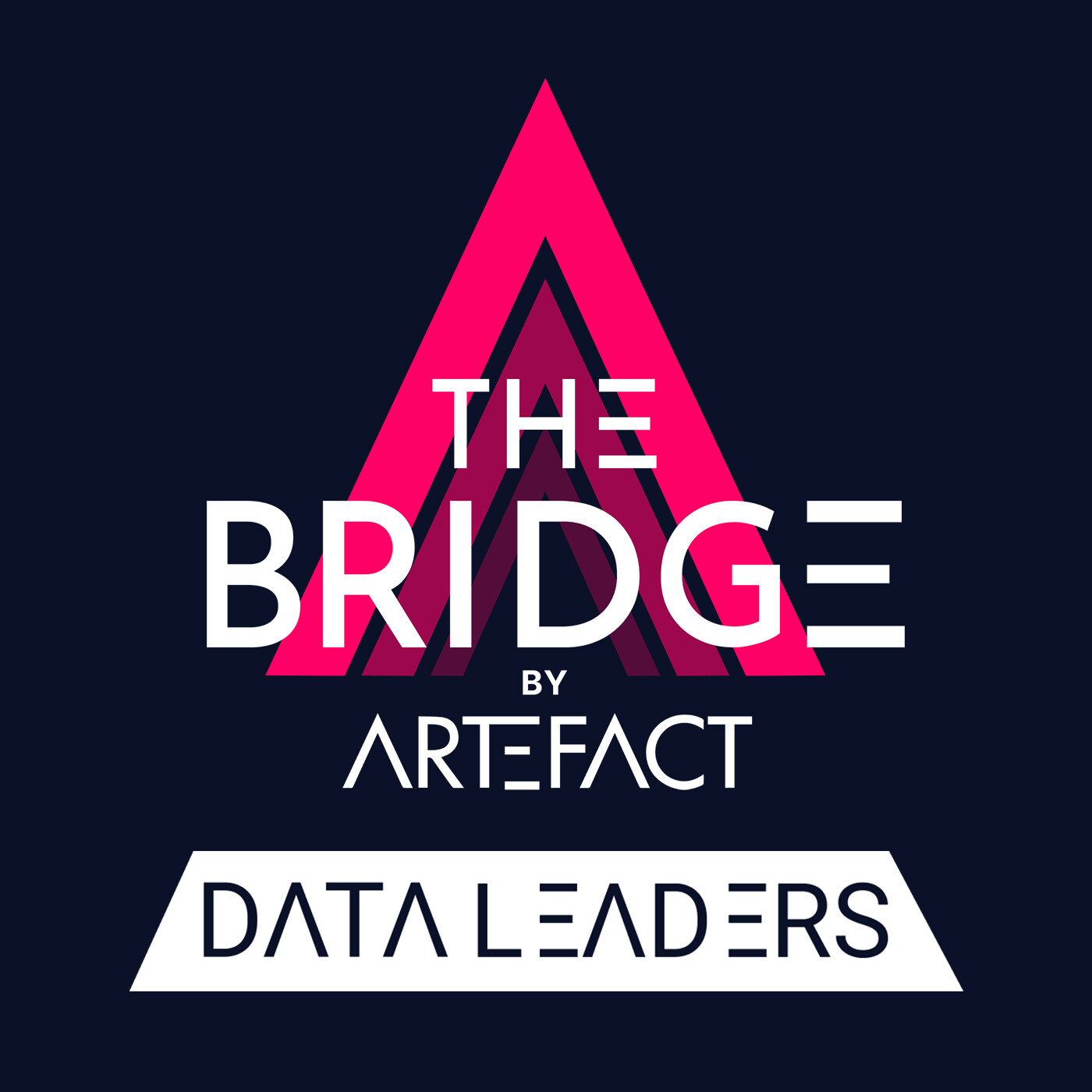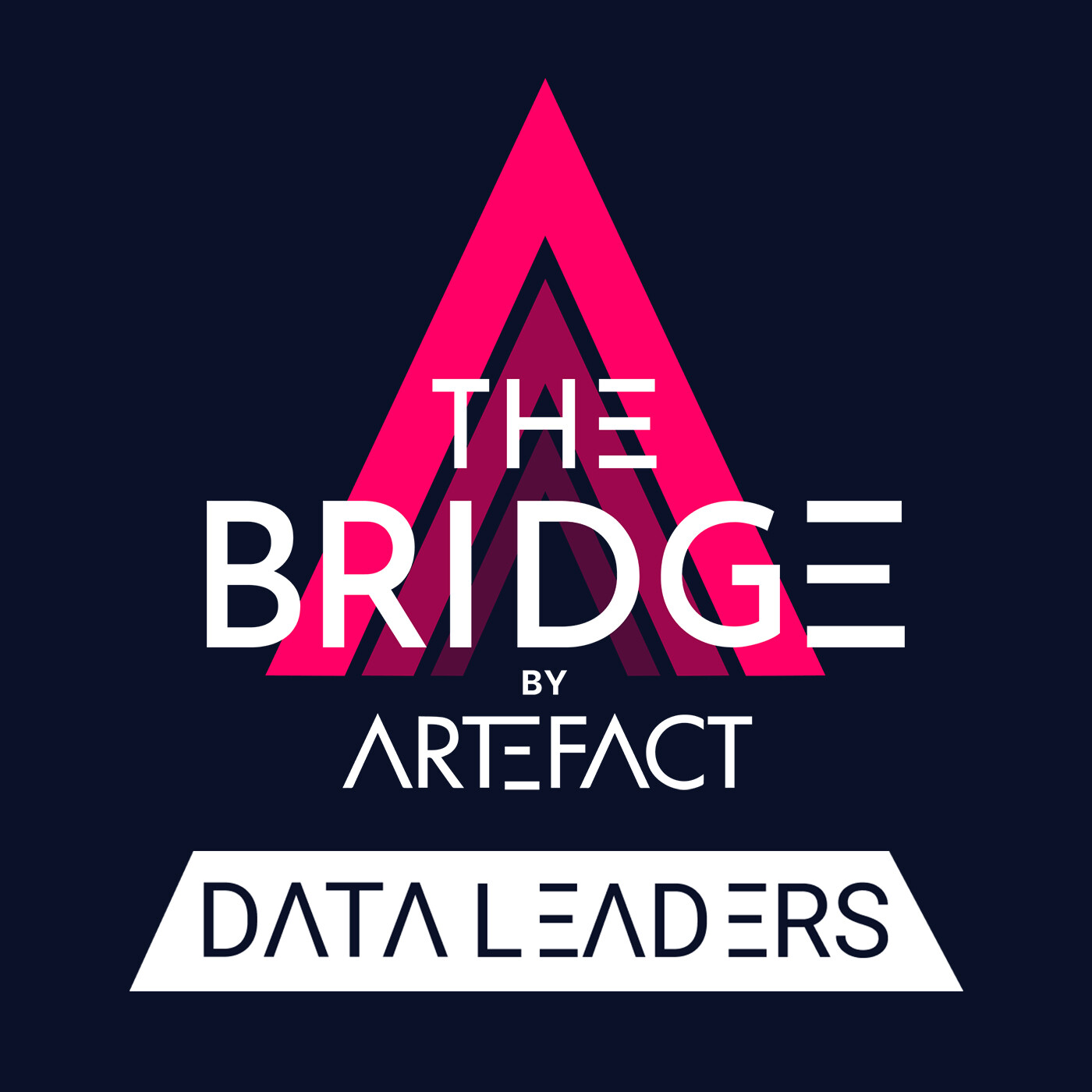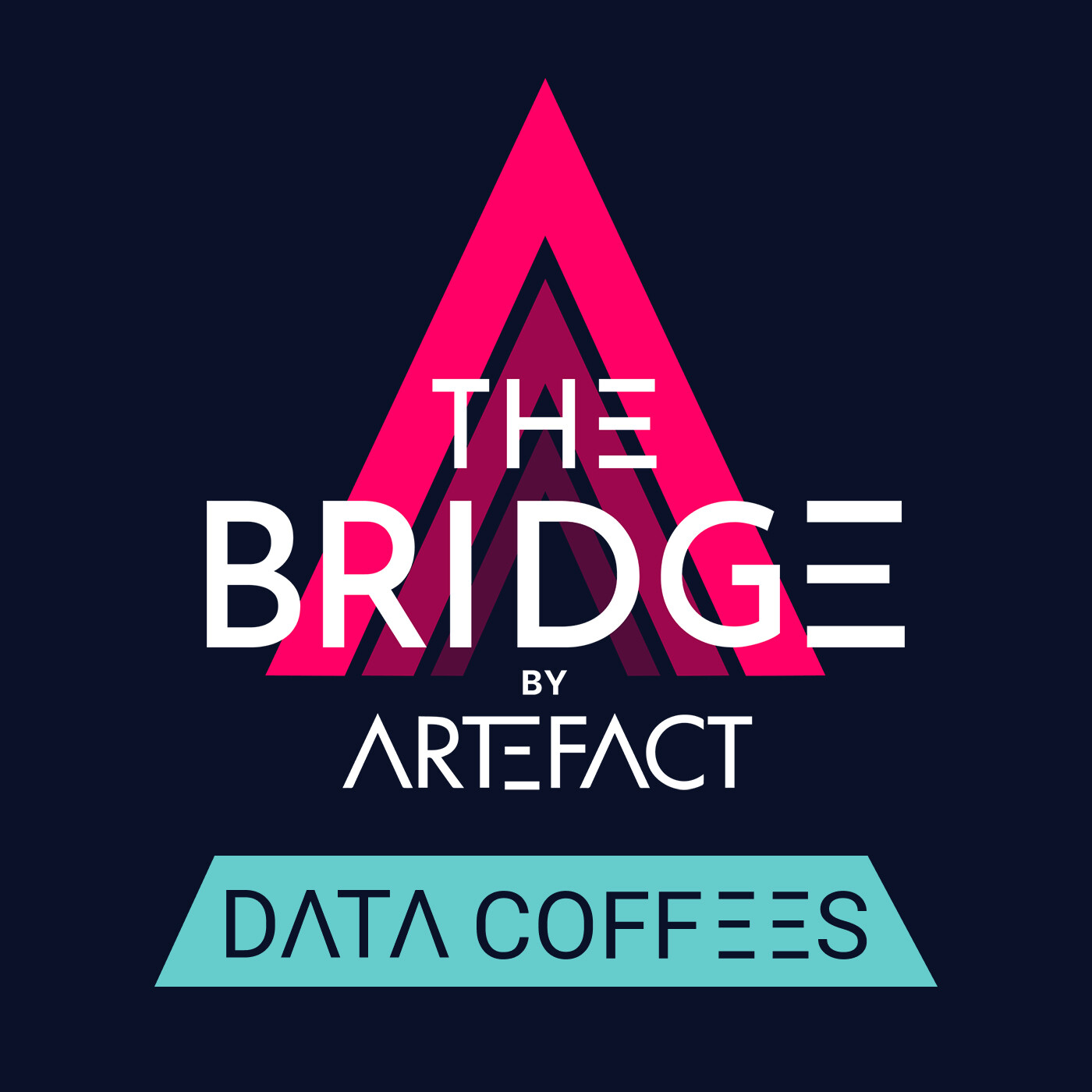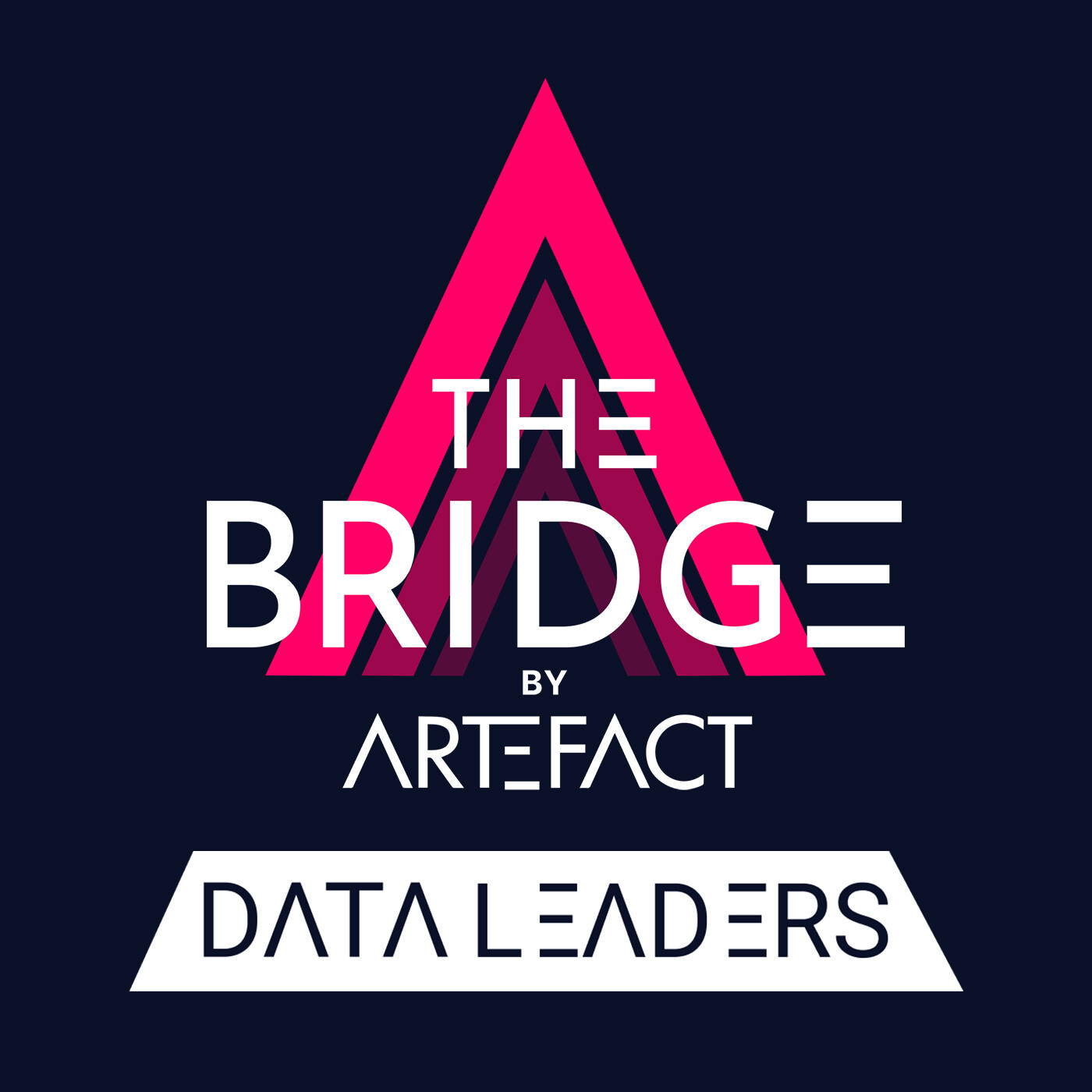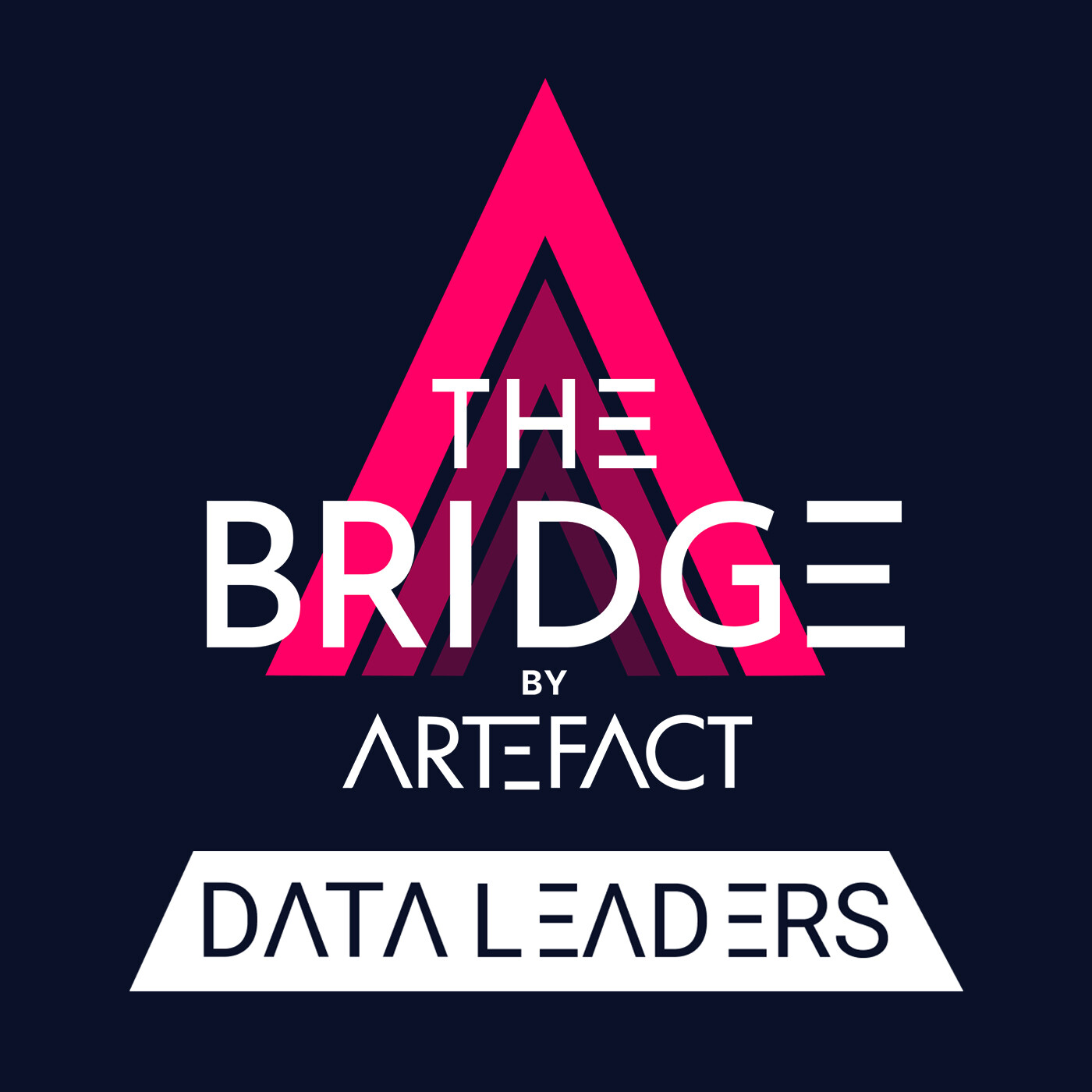Discover The Bridge by Artefact
The Bridge by Artefact

The Bridge by Artefact
Author: Artefact
Subscribed: 0Played: 0Subscribe
Share
© Artefact
Description
The Bridge by Artefact, c’est un pont vers la connaissance pour mieux comprendre et maîtriser votre environnement, qui se transforme grâce aux données et à l'IA.
Des entretiens inspirants en vidéo et podcats avec des acteurs influents qui partagent leurs savoir et convictions afin de vous inspirer dans votre quotidien et votre métier.
Hébergé par Ausha. Visitez ausha.co/fr/politique-de-confidentialite pour plus d'informations.
Des entretiens inspirants en vidéo et podcats avec des acteurs influents qui partagent leurs savoir et convictions afin de vous inspirer dans votre quotidien et votre métier.
Hébergé par Ausha. Visitez ausha.co/fr/politique-de-confidentialite pour plus d'informations.
49 Episodes
Reverse
The music industry is entering a new phase of transformation thanks to AI and generative AI. In this conversation for The Bridge, Julien Ho-Tong, Managing Partner at Artefact, and Nicolas Lang, Senior Consultant - GenAI Product Specialist at Artefact, explore the ways AI technology and tools are impacting music production, songwriting, and even gaming.Julien Ho-Tong holds a Master of Engineering from INSA Lyon, and a Master of Science Université Paris Dauphine. Before joining Artefact in 2023, he worked at Accenture, heading Data and AI Strategy for France. He has led over 70 missions advising CXOs from private and public organizations worldwide.Nicolas worked as a GenAI researcher at Tsinghua University in Beijing and developed AI models for music generation. In China, before joining Artefact, he helped produce the video game Oblivion: Remastered with Virtuos. He lectures on GenAI at New York University. After four years as a data science consultant, he now specializes in GenAI for the healthcare & creative industries at Artefact.Hébergé par Ausha. Visitez ausha.co/politique-de-confidentialite pour plus d'informations.
Hébergé par Ausha. Visitez ausha.co/politique-de-confidentialite pour plus d'informations.
To fully harness the power of data and IA within the travel, tourism and transportation sectors, Florent Bernard explains that organizations need to invest in three technological building blocks: Data Clean Rooms, Customer Data Platforms (CDPs), and Consent Management Platforms.Areas where AI has the potential to benefit the tourism industry include different use cases, such as:1. Predictive maintenance: AI can predict component failures before they happen, so rail and air companies can take proactive measures and reduce downtime.2. Flight route optimization: AI can help airlines balance between accelerating to avoid a costly delay or accepting a minor delay to conserve fuel. 3. Contrails: These vapor trails seen behind flying aircraft account for a third of aviation's carbon footprint. By adjusting altitudes based on atmospheric conditions, airlines can cut contrail formation in half while only slightly increasing fuel consumption.Beyond operational efficiency, generative AI can improve customer travel with personalized travel suggestions based on users’ budget, travel preferences, and constraints. In addition, AI-powered virtual assistants can respond to customer queries in real-time, recommend activities, or even provide translation services.“We’re moving towards a world where every aspect of travel will be hyper-personalized and optimized through AI,” he says. “The winners will be those who not only collect data but truly leverage it to enhance the customer experience and operational efficiency.”Hébergé par Ausha. Visitez ausha.co/politique-de-confidentialite pour plus d'informations.
Céline Bracq et Florence Bénézit échangent sur le rapport "Future of work with AI". Elles reviennent sur comment l'IA révolutionne le lieu de travail, améliore la productivité, crée de nouvelles opportunités et transforme la manière dont les employés collaborent.Hébergé par Ausha. Visitez ausha.co/politique-de-confidentialite pour plus d'informations.
DeepSeek R1 bouleverse le marché de l'IA avec une approche ultra-optimisée : des performances équivalentes à GPT-4-o, mais avec des coûts d’inférence réduits de 30 fois et des dépenses d'entraînement limitées à seulement 6 millions de dollars. Grâce à des innovations clés (MoE, GRPO, RLHF optimisé), DeepSeek remet en question l’idée que la puissance brute est la seule voie vers la domination de l’IA. Mais cette révolution s’accompagne de controverses : accusations d’entraînement sur des données d’OpenAI, préoccupations concernant la censure et incertitudes liées au RGPD sur son API. DeepSeek R1 est à la fois une avancée technologique et une zone grise réglementaire, repoussant les limites de l’IA accessible et rentable.Hébergé par Ausha. Visitez ausha.co/politique-de-confidentialite pour plus d'informations.
Dans cet épisode de The Bridge by Artefact, Hanan Ouazan partage son expertise sur les Agents IA et leur impact sur l’automatisation des processus métiers et l’accélération de la productivité en entreprise. Il est interviewé par Caroline Goulard, CEO et fondatrice de 2 sociétés dans la data, à la fois sur son analyse de cette transformation majeure en train de s’opérer et les nouveaux cas d’usage qui vont en résulter. Hébergé par Ausha. Visitez ausha.co/politique-de-confidentialite pour plus d'informations.
Edouard de Mézerac has developed the Luxury & Beauty Practice at Artefact, which has become a strategic sector for AI acceleration.Who is Edouard? He has spent much of his career in Asia, from Shanghai to Singapore, developing deep expertise in the region’s AI-driven luxury ecosystems. Significantly different from Western systems, China’s AI is defined by an abundance of data from its large population, and one-stop social media platforms like WeChat that differ from more decentralized Western models. Edouard and the Artefact teams have collaborated with many major luxury groups across China, the US, and Europe, giving a holistic view of the luxury industry.What is the key topic of this video and podcast? In this interview by Caroline Goulard, journalist and CEO of two data companies, Dataveyes and Modality, Edouard de Mézerac discusses the rapidly evolving luxury industry and its relationship with data and AI today. He explores topics ranging from the data and AI maturity of organizations and industry-specific use cases to future challenges for the luxury sector and ways to solve them.Today, luxury brands are also launching new generative AI solutions and the challenge remains in scaling these innovations while establishing robust data governance frameworks.Hébergé par Ausha. Visitez ausha.co/politique-de-confidentialite pour plus d'informations.
Vincent Wang, Chief Digital Officer of Legrand, is in charge of the Legrand Group’s digital strategy and transformation. He is a graduate of HEC and Mines Paris - PSL, two of France’s top universities. In this 40-minute interview for The Bridge, he discusses the arrival of generative AI at Legrand and the effects it had on Legrand’s data-driven approach and digital roadmaps. He explains how they showcased concrete cases and demos created by their teams to illustrate how Gen AI can be adapted to the Legrand context.Hébergé par Ausha. Visitez ausha.co/politique-de-confidentialite pour plus d'informations.
Dans cet entretien, Justine Nerce, Managing Partner Artefact France et Global Lead du secteur de la Santé (Health & Pharmaceuticals) décrit l'importance de l'intelligence artificielle dans l’optimisation de la recherche pharmaceutique, la gestion des pénuries de médicaments et la transformation numérique des processus industriels et logistiques. Elle souligne également comment cette industrie de la santé est confrontée à des défis éthiques, réglementaires et technologiques que l’IA peut aider à résoudre pour opérer sa mutation et gagner en performance.Hébergé par Ausha. Visitez ausha.co/politique-de-confidentialite pour plus d'informations.
Aleksandra explains that, unlike Marketing Mix Modeling (MMM), incrementality testing is less demanding in terms of resources and data, allowing companies to start more simply. She uses the example of a large company with 25 different markets to show how incrementality testing can identify which marketing campaigns generate positive or negative ROI, enabling investment optimization.Incrementality testing is described as a tactical tool, operating in the short term and allowing for quick adjustments, while MMM provides a long-term strategic view. Aleksandra highlights that incrementality testing and MMM can work together in a mature organization, offering diverse and rich insights to improve business results. Incrementality testing promotes agility by encouraging businesses to experiment with different marketing channels and tactics, making adjustments based on real-time feedback and performance.Hébergé par Ausha. Visitez ausha.co/politique-de-confidentialite pour plus d'informations.
Dans cet entretien, Jean-Marie John-Mathews retrace son parcours unique: lorsqu’il était data scientist, il suivait en parallèle des études de philosophie. Il se consacre ensuite pleinement à la recherche en poursuivant un doctorat sur les questions d’éthique de l'IA, thèse pour laquelle il a reçu de nombreux prix. Il est aujourd'hui chercheur associé à l'université Paris-Saclay et cofondateur de Giskard, startup open source leader sur le testing de l’IA. Jean-Marie explique comment l'intelligence artificielle et le machine learning ont bouleversé les catégorisations traditionnelles et nous mènent aujourd’hui à penser les biais et les risques sous un autre angle. Ses activités de recherche se situent dans le champ de l’éthique des technologies et plus particulièrement celle des algorithmes et des technologies d’IA (AI Ethics). L’AI Act fait aussi partie de ses sujets de prédilection.Hébergé par Ausha. Visitez ausha.co/politique-de-confidentialite pour plus d'informations.
Nathalie Beslay, CEO et co-fondatrice de Naaia et avocate, nous explique en quoi consiste l’AI Act et comment l’Intelligence Artificielle est considérée comme un “produit, qui est soumis à des réglementations d’usage devant être appliquées pour certaines d’ici la fin de l’année 2024, et ce par tout type d’entreprise quelle que soit leur taille, leur secteur, privé ou publique. Intégrer la conformité européenne dans les processus de mise en marché n'est pas seulement une nécessité réglementaire, mais également une opportunité business pour renforcer la qualité et la sécurité des produits d'IA.Hébergé par Ausha. Visitez ausha.co/politique-de-confidentialite pour plus d'informations.
Julien Ho-Tong, Partner and Data/AI Strategy & Governance Expert at Artefact, interviewed by Caroline Goulard, Journalist and CEO of Dataveyes, talks at length about data governance: what it is, why it's important, what constitutes an effective data governance strategy, and most importantly, how to acculturate ExComs to its value.Hébergé par Ausha. Visitez ausha.co/politique-de-confidentialite pour plus d'informations.
Matthieu Rouif co-founded the company Photoroom in 2020, whose app has significantly impacted the digital photo editing landscape through the usage of AI technologies. Through his company, he wants to give any small business owner the ability to produce studio-quality photos for their products — and compete with a global retail giant with endless marketing resources. Listen to his strong optimism toward the future of generative AI!Hébergé par Ausha. Visitez ausha.co/politique-de-confidentialite pour plus d'informations.
Laurent Daudet a plus de 15 ans d'expérience dans la recherche académique, expert internationalement reconnu des liens entre théorie de l’information et physique des ondes.Il a co-fondé la société LightOn en 2016, qui s'est rapidement établie comme une entreprise emblématique de l'intelligence artificielle en France. Il raconte son parcours de professeur à entrepreneur, et sa vision d'une IA générative privée, sécurisée et éthique pour les entreprises.Hébergé par Ausha. Visitez ausha.co/politique-de-confidentialite pour plus d'informations.
In this video interview, Siddharth Mohan, Director Data Science & Global Lead for Causal AI Research & Marketing Mix Modelling at Artefact, explains the three methodologies (attribution, incremental testing, and marketing mix modeling, or MMM) that comprise the marketing measurement framework.Attribution, incremental testing and MMM currently face constraints preventing seamless collaboration.- The attribution model needs to incorporate constraints which contextualize the baseline, critical to understanding the overall impact of marketing activities.- Incremental testing often necessitates advanced techniques like Bayesian Causal Inference and the Potential Outcomes Framework to remove confounding effects.- In MMMs, there are solid opportunities to leverage the latest advances in Structured Causal Models.Hébergé par Ausha. Visitez ausha.co/politique-de-confidentialite pour plus d'informations.
Bertrand Brisou, Director, Data & Analytics at Artefact discusses his work as leader and coordinator of Artefact’s global marketing and measurement initiative.On the agenda:What is marketing measurement? What are the challenges facing it?What are the methods of marketing measurement? What is each method used for?What are the challenges when dealing with online and offline marketing channels?How can companies strengthen their marketing measurement in 2024?“Marketing Measurement is the art of measuring the impact of marketing channels on the business and the art of optimizing the marketing channel to maximize business outcomes that are generated from marketing initiatives,” says Bertrand BrisouHébergé par Ausha. Visitez ausha.co/politique-de-confidentialite pour plus d'informations.
Sami Taaissat, Software & Data Engineer chez Artefact, partage la démonstration de la solution Generative AI Babylone : génération “immédiate” d’un agent conversationnel sur une base de connaissance existante ou d’un site web. Cette solution permet l'amélioration de l'expérience client grâce à la réduction des frictions et du temps consacré à la recherche d'informations, ainsi qu'une meilleure mise à disposition de la connaissance interne dans une entreprise. Elle apporte également de nombreux avantages aux équipes de vente et au service clientèle : une réduction du temps de résolution et une augmentation du nombre d'appels par heure, une meilleure pertinence des offres suggérées, une réactivité accrue, en particulier pour les agents moins qualifiés et les nouveaux opérateurs.Hébergé par Ausha. Visitez ausha.co/politique-de-confidentialite pour plus d'informations.
Xavier Perret, Directeur Cloud Azure chez Microsoft France, partage sa vision de l’impact de l’IA générative sur la société et les entreprises. Étant au cœur de cette révolution technologique depuis ses débuts, notamment avec le partenariat de Microsoft avec OpenAI, il a une analyse fine et un retour d'expérience très riche.
Xavier est à la fois passionné d’IA, mais aussi de cinéma et science fiction. Il nous partage dans cet entretien de nombreuses références et analogies pour mieux se projeter dans ce nouveau monde en pleine mutation.Hébergé par Ausha. Visitez ausha.co/politique-de-confidentialite pour plus d'informations.
Discover the interview with Aleksandra Semenenko, Data Science & Consulting Director at Artefact UK, about Marketing Mix Modeling. Aleksandra talks about the different trends she encountered with clients. She also explains Artefact's approach and mindest to tackle different issues. She finishes by sharing her vision of the future of MMM and how it will evolve in the coming years.Hébergé par Ausha. Visitez ausha.co/politique-de-confidentialite pour plus d'informations.


